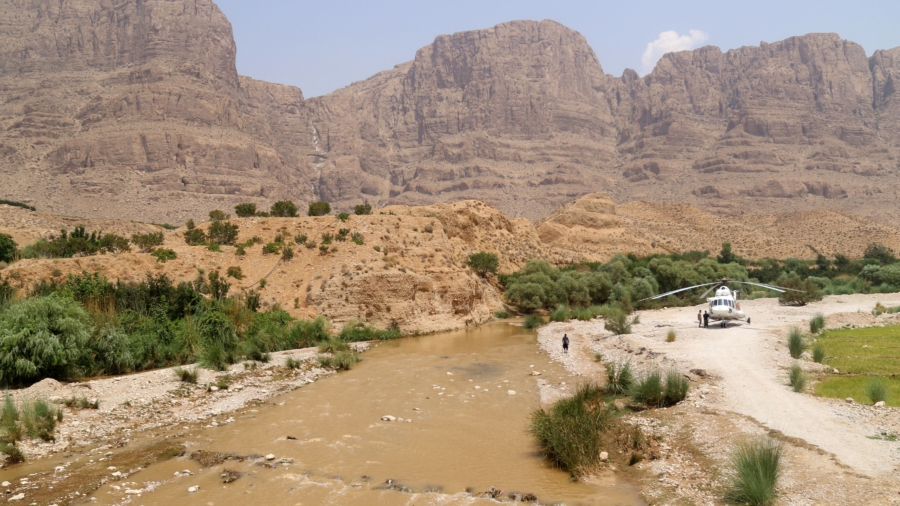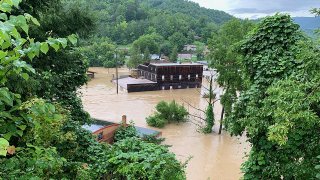New wildfires rage in France and Portugal as temperatures spike
In Portugal, a blaze broke out in the Mafra area, north of Lisbon, while in France at least four firefighters were seriously injured and motorways were closed.
Around 400 firefighters were drafted in to fight the blaze around 40 kilometres (25 miles) north of Lisbon.
Residents tried to slow the advance of the flames by hosing their gardens, as the flames also swept through neighbouring forests, according to television images.
A retirement home housing 30 people was evacuated as a precautionary measure, Commander Paulo Santos of the Civil Protection Authority told Renascenca radio.
Elsewhere, other major outbreaks raged in northern and central Portugal, requiring over 1,000 firefighters.
In central Ourem, a river beach was also evacuated as a precaution, while two people suffered smoke inhalation, according to an emergency official quoted by the Lusa agency.
Parts of northern and central Portugal were placed on alert this weekend in the face of “steep temperature rises” to more than 40 degrees Celsius, (104 degrees Fahrenheit) expected to last until at least Tuesday, according to the meteorological institute.
Experts blame climate change for the soaring temperatures—and warn that worse is yet to come.
Portugal, which remains traumatised by the deadly fires of 2017 which killed more than 100 people, was also hit in early July by a series of fires fanned by scorching temperatures.
Since the beginning of the year, more than 58,000 hectares (143,000 acres) have gone up in smoke, according to the latest, still provisional, data from the Institute for the Conservation of Nature and Forests (ICNF).
New fires, meanwhile, broke out in southeastern France on Sunday, with 350 hectares burned in Gard where a firefighter was seriously injured, and 35 hectares near Marseille hit, causing the partial closures of motorways.
“Four firefighters are injured,” announced Interior Minister Gerald Darmanin in a tweet about the fire which broke out around 3:00 pm in a pine forest in the town of Aubais, south of Nimes.
One of them was “seriously injured” and had to be evacuated by helicopter to the Montpellier hospital centre for burns to the hands and face.
The others were more slightly injured following a reversal of the flames by the wind which partly destroyed their vehicle, Eric Agrinier, who coordinated the operations, told AFP.
(AFP)
California wildfire: McKinney Fire spreads rapidly in north of state
By Alys Davies
BBC News
Wildfire in California grows to more than 50,000 acres in 48 hours.
Hundreds of firefighters in California are battling the largest wildfire to spread in the state so far this year.
The McKinney Fire, which started in the northern Siskiyou county on Friday, has already burnt 21,000 hectares (52,500 acres), the state's fire service said.
At least 2,000 residents as well as trekkers on the Pacific Crest hiking trail have left the area, authorities say. Homes have been destroyed.
It was 0% contained as of Sunday, the emergency service's latest report said.
A red flag warning indicating the threat of dangerous fire conditions is in place, as California suffers from persistent drought conditions.
A state of emergency was declared in Siskiyou county on Saturday, after homes were destroyed and infrastructure was threatened, state governor Gavin Newsom said.
The fire was "intensified and spread by dry fuels, extreme drought conditions, high temperatures, winds and lightning storms", he added.
Authorities warn that possible thunderstorms could result in more fires developing in the coming days.
The US Forest Service warned that conditions could be "extremely dangerous for firefighters, as winds can be erratic, and extremely strong, causing the fire to spread in any direction".
Meteorologist Brad Schaaf told the New York Times, however, that smoke from the McKinney blaze could lower temperatures, which would then counteract some of the dangerous "thunderstorm ingredients".
The fire is the second major blaze to hit the state in recent days. The Oak Fire, near Yosemite National Park, is still roaring after eight days but has been 67% contained, the fire department Cal Fire said.
California, which is facing serious drought conditions, still has months of its fire season ahead.
Climate change increases the risk of the hot, dry weather that is likely to fuel wildfires.
The world has already warmed by about 1.1C since the industrial era began and temperatures will keep rising unless governments around the world make steep cuts to emissions.


